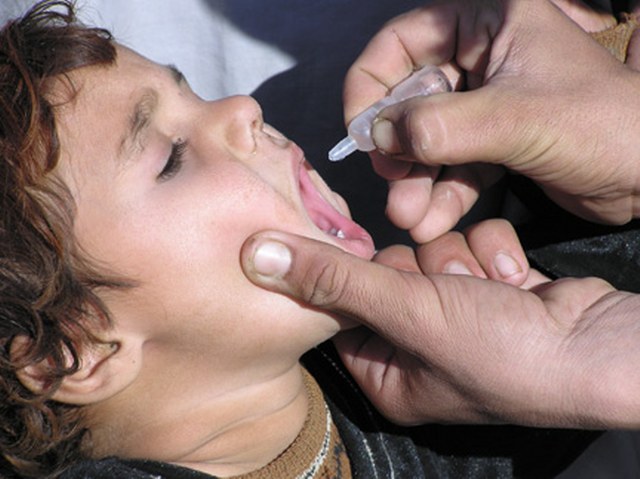
In December, nine Pakistani health workers, most of them women, were murdered as they went door-to-door delivering polio vaccines to the children of their neighbors. Media attention to this event has focused on the fact that the CIA recently used a fake vaccination campaign as a cover when searching for Bin Laden, claiming to be giving children vaccinations while actually taking blood samples. This reprehensible CIA plot has contributed to public distrust of vaccination and suspicion of health workers. That said, in the last month, other female health workers, not working on polio or immunization, have been targeted, so the story is not quite that simple. I don’t have insight into the motives of the militants, and nobody has claimed responsibility for the killings. But it’s likely that the murders are part of a broader militant effort to destabilize the Pakistani government, and militants may have focused on polio workers because of intense international pressure to eradicate polio in the country.
The assassination of health workers in Pakistan does make a couple of points crystal clear. These workers, often women, are the critical links in delivering health services across the most dangerous and undeserved areas of Pakistan. Terrorists targeted them precisely because of this importance. Yet while these workers have put their lives on the line, their own government and the international organizations that sponsor their work have undervalued them.
Women who deliver polio vaccine in Karachi and other cities in Pakistan are, for the most part, struggling to get by. They’re doing hard work for a small amount—under $5 a day—because they don’t have other options, and because they aim to serve God by serving their neighbors.
“I get paid for my blood and my sweat, but there’s relief in the work too,” Aisha [names have been changed], a confident and articulate 25-year-old, explained to me last year as I interviewed polio workers in Pakistan. She works on polio campaigns—and does broader work providing basic health education to her neighbors—because it was some of the only work available when her husband abandoned her and her young son.
“I’m very satisfied,” she explained, “that I didn’t have to beg from anyone. Sure, my salary was very small, but it was my own money. With that money I took care of myself, I took care of my son. Everything is so expensive now, so expensive, but I can scrape by. My son is seven, mashallah, and he’s in second grade. I’m sending him to school.
“Standing on your own two feet is the most important thing. It’s just the first step that someone has to take by themselves. When someone tries, Allah surely will give them rewards for their work, and Allah builds courage in that person. And I’m satisfied with my life, thanks to God.”
Hamida, in her thirties with three children, added, “I think it’s better than complaining about your fate to work hard. Feed your children, raise them well. But when after working so hard you get so little money, your heart breaks.”
And as committed as these women are, job advancement is all but impossible. “I had such a desire to become a doctor!” said the lively and slender Shazia, laughing. “There was a dentist here, and I used to go to her office and follow her around.”
When her father died unexpectedly, Shazia began working for the health department to support her mother and young siblings. The money she made wasn’t nearly enough, but it was better than nothing, and it was honestly earned. Over the years—she is now in her mid-thirties—she has sacrificed her opportunities to have a family of her own in order to continue to live with her aging mother. “I’ve been thinking of further study, because really, I want to move up. But I look, and there really aren’t any ways for me to advance. There’s no chance, absolutely no way. All of my dreams, I’ve left them all behind. What I wanted to do.”
The women who died were drawn from a group of the most pious, moral, and inspiring women I know. They bravely ignore the gossip that follows them in neighborhoods where many women only rarely leave the house. They tell me that if they do the right thing, God will provide.
Fear of murder must not be compounded with financial insecurity and lack of support as among the problems these brave women face. Partners in polio eradication—WHO, UNICEF, CDC, Rotary, and the Pakistani government—should immediately prioritize funding for support of these critical workers. Given the dangers, $20 a day for polio work is not too much. These partners should also make scholarship funding available for those brave women who want to do more to serve their communities. It is time for everyone who desires the eradication of polio to affirm the commitment and worth of some of the world’s most courageous women.
Svea Closser is a Middlebury College assistant professor of sociology and anthropology. She is the author of the book, “Chasing Polio in Pakistan” (Vanderbilt University Press, 2010). The research described here was carried out in the summer of 2011 and was funded by UNICEF.

